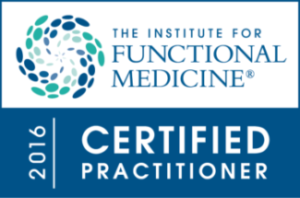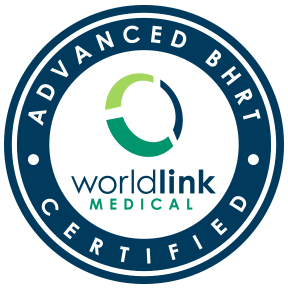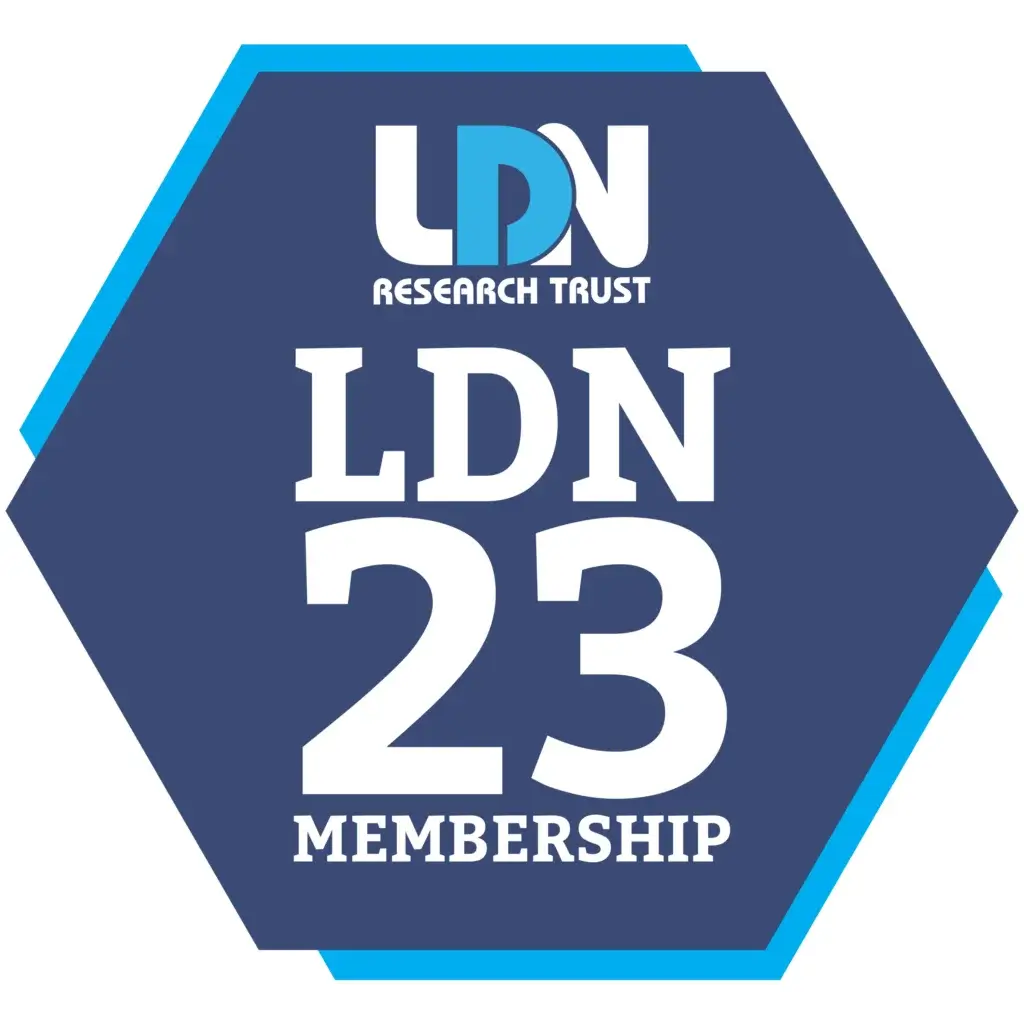Chronic stress is considered to lead to adrenal fatigue (or adrenal insufficiency). The adrenal gland (small, walnut-sized gland on top of each of our kidneys) is responsible for secreting the hormones cortisol, epinephrine, norepinephrine, dopamine, mineralocorticoids and sex hormones. These hormones help us adapt to stress and under normal circumstances, cortisol is needed as an anti-inflammatory, to promote healing and manage pain, as well as to regulate blood sugar. Additionally, normal secretion of cortisol promotes fat burning, maintains mood and emotional stability (preventing depression), counters allergies, and directs ovarian and testicular hormone levels. But under stress, cortisol is secreted in an attempt to liberate fuel (“to keep us running from the tiger”), and to provide us the metabolic response needed to face and overcome the stressor (the “fight or flight” response).
If unrelenting stress is experienced, the adrenal glands do not have time to recover and cannot maintain the excess secretion of cortisol and other hormones needed to deal with a stressor.
When the production of cortisol is dysregulated, it can affect our insulin secretion, as well as the production of sex and thyroid hormones, and perpetuate inflammation, leading to weight gain, disruption of menstrual cycle, low libido, and trigger depression and exacerbate fatigue. Excess cortisol causes the body to be in a catabolic state, meaning it breaks down body tissues for fuel. This catabolic state can lead to osteoporosis (bone loss) and muscle wasting, which also leads to the breakdown of the gut lining for fuel. This is significant, since the gut lining maintains the integrity of our immune system and allows us to absorb nutrients needed for neurotransmitter production and overall health. The gut lining also keeps inflammation and infection at bay and helps balance the gut bacterial flora.
The adrenal hormones become depleted with chronic stress and the variety of symptoms experienced (depending on the severity and duration of the stress) are classified into 3 different stages (stage 1, stage 2 and stage 3). What most people don’t understand is that the stress is actually coming from the brain that has been overwhelmed and from under-functioning mitochondria. Our brain’s amygdala and limbic systems receive the inputs of stress from all parts of the body as well as from the environment, and thus gets stuck in the “on” mode, thereby keeping the body in a “fight or flight” mode, and then sending dysfunctional signals to the adrenal glands. In the beginning, cortisol is produced by the adrenal glands in response to the stress, but if the stress continues and adrenaline continues to be dumped, over time the precursors, e.g. DHEA, progesterone and pregnenolone hormones get used up (called “the cortisol steal) and the level of cortisol being made decreases.
Symptoms of Adrenal Fatigue:
- Structural problems
- Hormone imbalances
- Infections
- Osteoporosis
- Blood sugar dysregulation
- Infections
- Leaky gut and indigestion
- Liver dysfunction
- Sleep disorders
- Irritability
- Immune disorders
- Fibromyalgia
- Toxins
- Increased abdominal fat
- Impaired wound healing
- Excessive fatigue
- Anxiety
- Poor concentration and memory
- Menstrual irregularities
- Impaired erectile function in men
- Decreased sex drive
- Chronic muscle and joint pain
- Food cravings
- Food allergies
- Dry skin
- Light-headedness
- And more
Could It Be Any Clearer?
Most all adults will suffer from adrenal fatigue in various degrees at some time during their life. But despite this, our conventional medical system fails to recognize it. You complain of lack of energy and fatigue that first appears without reason, but then progessively worsens over the years. You once had a very active lifestyle, but now you can’t seem to drag yourself out of the house or even out of the bed. You go to your doctor, but all the lab testing comes back normal, while you continue to become more and more fatigued. Sadly, your doctor gives up on you and prescribes an anti-depressant–basically, gives you a band-aid because the conventionally-trained practitioner is ill-prepared to look for the root cause. But, adrenal fatigue is not a psychological condition. It’s a very serious condition, especially in advanced stages and people can literally crash and become totally incapacitated. And another thing adrenal fatigue is not, is it is not a normal part of aging. Aging does not lead to a decreased vitality and inability to function.
The 3 most common stress causes of adrenal fatigue are:
- Emotional stress or trauma
- Dietary stress, caused by insufficient nutrients (especially B vitamins and vitamin C), overeating, food allergies, high intake of refined sugar and carbohydrates, bad fats
- Physical pain and inflammation (as a result of toxin exposure, infections, injury and other causes.
How Do You Heal The Adrenals?
It is necessary to lower the distress signals in the body, in order to improve our adrenal balance. It is necessary to determine which stage of adrenal fatigue you are in, to better know how to support it. The best way to determine this is to conduct a 4-point adrenal saliva stress test. Go HERE for more information and to purchase the test. Otherwise, here are some top 10 tips to support the adrenals:
- Get adequate sleep: this is number one for a reason. During sleep we are repairing and detoxifying. It’s important to be asleep during the hours of 10:30 pm to 2:30 am, as this is the time we are best detoxifying. However, we need at least 8 hours of sleep per night. Go HERE for more information on good sleep hygiene. Helpful sleep herbs and nutrients are melatonin, valerian root, 5-HTP, GABA, ashwagandha, magnesium and calcium. Progesterone can be very calming for the brain, so have your progesterone levels tested during the appropriate time of your menstrual cycle, if you are still a menstruating woman.
- Detox and treat inflammation and pain: have your functional medicine practitioner test your inflammatory markers. Most general practitioners do not test these. If inflammation is found, go on an anti-inflammatory diet, eat organic, non-GMO, and consider anti-inflammatory herbs and nutrients, e.g. tumeric, boswellia, fish oil and vitamin D. Drink sufficient water mainly away from meals), and eat slowly in a relaxed environment. Perform a detox protocol at least annually. Any of these herbs and nutrients that can help with inflammation can also help with pain relief. Additionally, consider the use of oral CBD, heating pads and ice, acupuncture and an Alpha-Stim unit. Always avoid NSAIDS and Tylenol pain relievers, if possible, as they can negatively effect your kidneys and liver. Consider epsom salt baths and stretch daily to help loosen up muscles and prevent muscle spasms.
- Eliminate sugar cravings: the best way to do this is to include “clean” protein at every meal, as well as good fats, e.g. avocados, organic butter, olive oil, coconut oil and nut butters. Protein and fats also can help with satiety, thus eliminating snacking and lead to a healthy weight. The herbal supplement Gymnema can help curb appetite and sugar cravings, as can EGCG, found as a supplement or in Matcha green tea. Eliminating fruit in the morning can also be helpful.
- Gut repair: all disease begins in the gut and gut repair is essential for decreasing total body stress. Consider an elimination diet to reduce gut pain and inflammation, and minimize sugar in all forms. Go HERE to learn more about how to heal he gut.
- Alcohol Reduction/Elimination: sadly, alcohol is used for stress relief by many, unknowingly perpetuating leaky gut, impacting blood sugar, disrupting sleep, disrupting sex hormone metabolism and driving sugar cravings. Seek alcohol cessation assistance if needed. Choose carbonated water with a splash of juice, as a substitute.
- Reduce viral, bacterial and fungal infection load: consider using transfer factors and/or botanical protocols along with Vitamin D3+K2, and high dose Vitamin C (at least 3000 mg per day in divided doses), rather than taking antibiotics. IV nutritional therapies can also be useful in boosting immune system function to help the innate immune system naturally fend off infections.
- Turn on your Parasympathetic Nervous System (PNS): the PNS is the “rest and digest” part of the nervous system that balances adrenaline and cortisol. Treatments include meditation, prayer, music, laughter, movement, and bodywork, e.g. massage, acupuncture, and chiropractic care. These can help turn on the calming influence of the vagus nerve.
- Gratitude and Laughter: despite the negative aspects of your life, there is always something we can be grateful for. Laughing (even if it is fake laughing) can reduce stress and promote endorphins. Laughter, smiling and appreciating help move the limbic system out of fight or flight and stops distress signals.
- Adrenal supportive nutrients and hormones: the specific adaptogen used will depend on what stage of adrenal fatigue you are in, and this is best determined with the 4-point adrenal saliva stress test. Typical supportive adaptogens are ashwagandha, rhodiola, eleuthero, adrenal cortex extracts, B vitamins, ginseng, theanine, phosphytidlyserine. Also, supplementation with DHEA and progesterone can also be helpful and also possibly thyroid hormone. Schedule a Hormone Consultation to assess your needs. Nutrients for adrenal support include vitamin C and magnesium, and vitamin E. When adrenals are severely depleted, the body’s ability to retain sodium may be impacted and thus adding 1/4 teaspoon of salt to water may be indicated, but only if your blood pressure is not elevated. Be sure to consult with your healthcare practitioner. Support for the brain and nervous system are needed also in the form of omega-3 fatty acids and B-complex vitamins. Omega-3 fatty acids allieviates brain inflammation that contributes to mood and cognitive issues and stress depletes B vitamins. Neurotransmitter support may also be indicated with the use of GABA, 5-HTP and/or tyrosine. GABA is an inhibitory neurotransmitter that calms frazzled nerves and quiets down a sense of overwhelm and anxiety. 5-HTP is a precursor to the neurotransmitter serotonin, which promotes a sense of well-being and can be helpful when emotions are stuck on anger and irritability. Tyrosine is a precursor to the neurotransmitter dopamine, which is depleted with stress. Dopamine allows us to feel happy and experience pleasure, unless it is depleted.
- Movement: regular daily activity is helpful to reduce stress and promote endorphin release and BDNF (brain-derived neurotropic factor) production, which is associated with cognitive improvement and the alleviation of depression and anxiety.
If you have tried all of these tips to heal your adrenals and you are still not feeling better, or not as well as you think you should be, check out “Three Reasons Why Your Adrenal Program May Not Be Working For You: How Do You Know If Your Adrenals Are Improving?“
Other Related Articles:
Top Ten Tips for Reducing Stress, Weight and Promoting A Balanced and Healthy Life
A Stress-Busting Eating Plan for Combating Sleep Deprivation & Weight Gain
Seven Tips to Improve Brain Health & Overall Well-Being: Make Sleep A Priority









